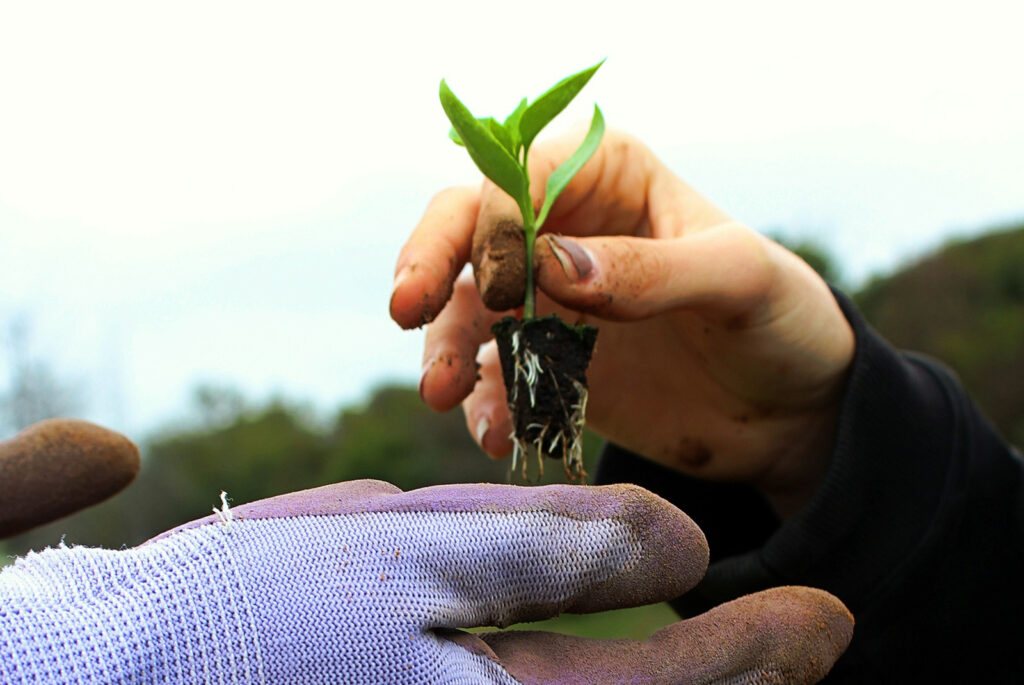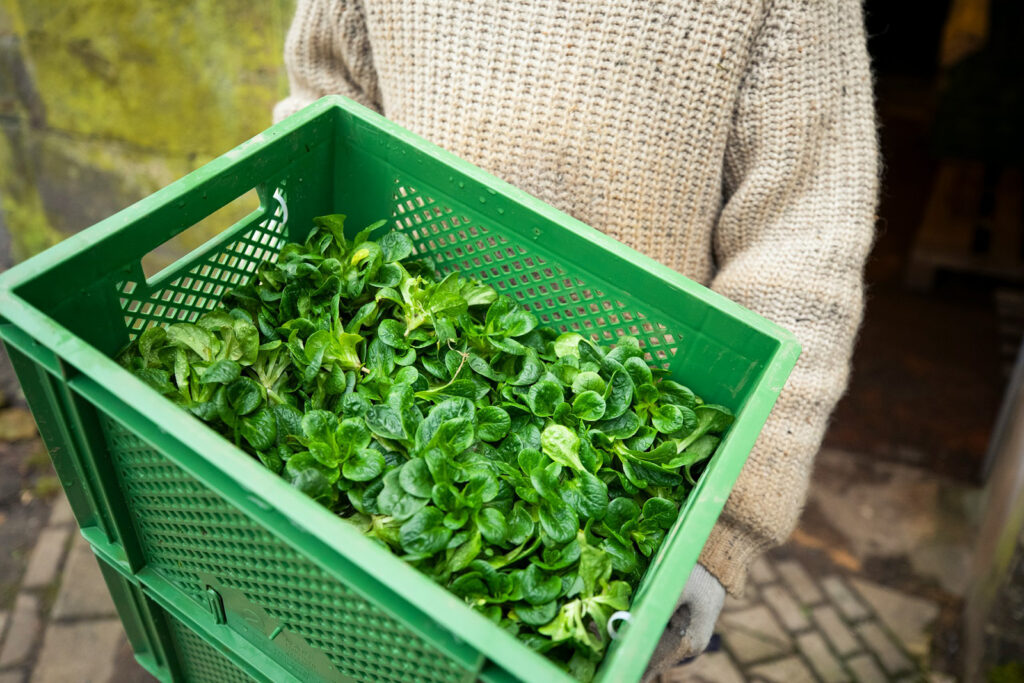
In an era marked by growing environmental awareness and shifting consumer preferences, sustainability has emerged as a fundamental consideration for businesses across industries. In today's conscientious marketplace, sustainability is no longer an option—it's a necessity, especially in the realm of food manufacturing. Whether you're a seasoned professional or a newcomer, prioritising sustainability isn't just about doing good; it's about securing your business's future.
In this guide, we'll explore essential strategies and actionable insights to help you make your food manufacturing business a model of sustainability. From resource optimisation to community engagement, let's pave the way for a more sustainable future!
Sustainability within the food manufacturing space refers to the practice of producing food in a manner that minimises environmental impact, conserves resources, and supports the continued well-being of communities and its future. It encompasses various aspects of production, including sourcing raw materials, processing methods, packaging, distribution, and even waste management. To learn more, check out this article by Food Matters Live.
At its core, sustainable food manufacturing aims to balance the needs of the present without compromising the ability of future generations to meet their own needs. This involves adopting practices that reduce greenhouse gas emissions, decrease water and energy usage, promote biodiversity, and even ensure fair labour practices throughout the supply chain. Some components of sustainable food manufacturing include:
Businesses can choose suppliers and raw materials that are grown or harvested in an environmentally responsible manner, such as organic farming practices or sustainable fishing methods.
By employing energy-efficient processes, reducing waste generation, and implementing technologies, businesses can minimise pollution and resource consumption that benefits everyone in the long run.
Packaging contributes significantly to the amount of waste generated. Try utilising eco-friendly packaging materials that are recyclable, compostable, or biodegradable, and minimising unnecessary packaging to reduce waste!
Optimising transportation routes minimises fuel usage and emissions, and supports local or regional sourcing to reduce the carbon footprint of transportation.
By implementing strategies to reduce, reuse, and recycle waste generated during the manufacturing process, as well as investing in innovative solutions for waste treatment and disposal, can provide cost-saving alternatives for businesses!
Overall, sustainability in food manufacturing is not only about producing food efficiently but also about fostering a holistic approach that considers the interconnectedness of environmental, social, and economic factors. By prioritising sustainability, food manufacturers can contribute to building a more resilient and equitable food system for the future. Learn more about upcycled food and beverage byproducts in our article!

Sustainability in food manufacturing has emerged as a critical priority in recent years, driven by a combination of trends, current crises, business potential, and concerns regarding food security. Here are some reasons as to why sustainability is important in this industry:
According to this United Nations (UN) site, the world faces pressing environmental challenges, including climate change, biodiversity loss, and resource depletion. Food manufacturing, as a significant contributor to greenhouse gas emissions and resource consumption, plays a crucial role in addressing these crises. By adopting sustainable practices, food manufacturers can mitigate their environmental impact and contribute to global efforts to combat climate change and preserve natural resources.
Ensuring a sustainable food supply is essential for food security, particularly in the face of growing global population and changing climatic conditions. Unsustainable practices in food manufacturing, such as overexploitation of natural resources, deforestation, and soil degradation, threaten the long-term availability and accessibility of food. By embracing sustainability, food manufacturers can contribute to building a more resilient and equitable food system that can withstand future challenges and meet the needs of present and future generations. Find out more on food security in this article by Deskera.
Consumer preferences are shifting towards more eco-conscious products, with increasing demand for sustainably sourced and produced foods. This trend is further fueled by heightened awareness of environmental issues, such as climate change, deforestation, and water scarcity. Discover additional insights about key factors driving food sustainability in this article from Precognize. As consumers become more informed, they are seeking out products that align with their values, including those that support sustainable practices in food manufacturing.
As written in this insight by the World Wide Fund (WWF), sustainability presents a significant opportunity for businesses in the food manufacturing industry. Adopting sustainable practices can lead to cost savings through improved efficiency, reduced waste, and lower resource consumption. Moreover, businesses that prioritise sustainability can enhance their brand reputation, attract environmentally conscious consumers, and gain a competitive edge in the market. Investments in sustainability can also drive innovation and foster long-term growth and resilience in the face of changing consumer preferences and regulatory requirements.
In conclusion, sustainability in food manufacturing is crucial for addressing environmental concerns, seizing business opportunities, and safeguarding food security. By integrating sustainability into their operations, food manufacturers can play a pivotal role in creating a more sustainable and resilient food system for the benefit of society and the planet! Find out more in this article by Future Learn.
As the food manufacturing industry grows to meet increasing consumer demands, it places greater strain on natural resources and ecosystems. However, by adopting eco-friendly practices in production, food businesses can lessen their environmental footprint while securing sustainable advantages in the long term. Let's delve into some of the primary environmental challenges encountered by food manufacturers and propose actionable solutions for integrating eco-friendly practices into their production processes.
The overexploitation of natural resources such as deforestation and overfishing, and the release of pollutants into the environment pose significant threats to ecosystems and human health. You can check out some data on the environmental impact of food across the globe on this page by Strategy&.
To tackle resource depletion and pollution in food manufacturing, businesses can adopt sustainable sourcing and production practices. This involves prioritising suppliers that employ sustainable agricultural methods, optimising resource use within manufacturing facilities to reduce waste and energy consumption, and implementing pollution prevention strategies such as minimising chemical inputs and using recyclable packaging materials. By integrating these practices, food manufacturers can reduce their environmental impact, conserve natural resources, and contribute to a healthier planet.
The escalation of greenhouse gas emissions in the atmosphere presents a pressing concern for food manufacturing industries. These emissions exacerbate climate change, manifesting in adverse effects such as heightened global temperatures, intensified occurrences of extreme weather events like storms and droughts, and the consequent rise in sea levels
Typically, agricultural activities associated with food production, including livestock farming, fertiliser application, and land use changes, release significant amounts of greenhouse gases into the atmosphere. For instance, methane emissions from enteric fermentation in livestock and nitrous oxide emissions from fertiliser application contribute to the greenhouse effect and climate change. These impacts pose substantial challenges to food production and distribution systems, affecting crop yields, supply chain logistics, and food security worldwide.
Addressing the challenge of climate change and greenhouse gas emissions in food manufacturing necessitates adopting sustainable practices. This involves transitioning to renewable energy sources, reducing carbon footprints throughout the supply chain, embracing sustainable agriculture techniques like no-till farming and agroforestry, and minimising food waste.
Businesses can look towards integrating solar-powered technologies into food manufacturing operations, which can significantly reduce greenhouse gas emissions. By harnessing solar energy to power equipment and facilities, food manufacturers can significantly mitigate their environmental impact, lower operating costs, and build a more resilient and sustainable food system for the future. Find out more in this article by Aztech Solar.
Industrial activities often lead to habitat destruction, deforestation, and biodiversity loss, endangering ecosystems worldwide. For example, forest clearing for agriculture disrupts habitats and ecological balance. These activities threaten biodiversity and essential ecosystem services like clean water and climate regulation. Immediate action is crucial to mitigate these impacts and protect our planet's biodiversity.
To combat biodiversity loss and habitat destruction in food sustainability, it is vital to prioritise conservation efforts and adopt sustainable land management practices. This includes protecting natural habitats, implementing biodiversity-friendly farming techniques, and seeking certification from reputable organisations to ensure environmentally responsible practices. By promoting sustainable land use and biodiversity conservation through using certified sources, food manufacturers can help preserve ecosystems, support biodiversity, and ensure the long-term sustainability of food production systems.
Now that we've discussed some of the environmental challenges faced by industries, let's delve into practical strategies for integrating eco-friendly practices into production processes.
Implementation of processes that monitor production of goods can help inform businesses on where to utilise energy-efficient technologies and equipment. Manufacturing processes can also further benefit from optimal resource usage, such as water recycling systems and waste heat recovery.
By sourcing materials from suppliers that adhere to ethical and sustainable practices, businesses can promote environmental conservation, support local communities, uphold social responsibility standards, and contribute to the long-term viability of ecosystems while also enhancing their brand reputation and competitiveness in the market.
Prioritise locally sourced ingredients to reduce carbon emissions associated with transportation and support local economies.
Food businesses can adopt circular economy principles through practices such as reducing food waste, sourcing ingredients locally and sustainably, utilising by-products or surplus food, and implementing efficient packaging solutions to minimise environmental impact throughout the supply chain. These practices can help to minimise the overall environmental impact, decrease landfill waste, and conserve resources.
By addressing environmental challenges and implementing eco-friendly practices in production, businesses can play a crucial role in fostering a more sustainable future. From resource management to waste reduction, every step towards environmental stewardship contributes to the preservation of our planet for future generations.

Building a culture of sustainability within food manufacturing companies is crucial for mitigating environmental footprints, promoting ethical practices, and fostering positive relationships with stakeholders and the community. In this section, we'll explore practical strategies for engaging with stakeholders and the community to promote sustainability in food manufacturing, along with a real-world example. In the context of food manufacturing, engaging with stakeholders and the community is essential for driving sustainability initiatives forward. Here's how companies can effectively engage with stakeholders and the community:
Businesses can foster transparency in the supply chain by communicating openly with suppliers, farmers, and producers about sustainability expectations and practices. Collaboration with stakeholders to trace the origins of ingredients, ensures responsible sourcing practices and promotes fair trade principles throughout the supply chain. To read more, take a look at this white paper published by Purdue University.
Companies can educate consumers about sustainable food choices, environmental impacts of food production, and the importance of supporting ethical and eco-friendly brands.
By utilising marketing campaigns, product labelling, and educational materials, it communicates your company's commitment to sustainability and encourages consumer participation in sustainability efforts. As consumers become more acquainted with your company's values and principles, they often find them to be the determining factor in selecting your brand over others.
Partnering with local communities is integral to promoting food sustainability and addressing issues like food insecurity. Collaborating with food banks, community gardens, and nutrition programs helps increase access to healthy, sustainable food options for everyone. Additionally, supporting community-led initiatives such as urban agriculture projects, composting programs, and food waste reduction efforts positively impacts local food systems, fostering resilience and sustainability.
Engaging with industry associations, non-governmental organisations (NGOs), government agencies, and academic institutions is crucial for advancing food sustainability initiatives. By collaborating on research and development projects, sharing best practices, and advocating for policy changes, stakeholders can collectively support the transition towards sustainable food systems. Hosting stakeholder forums, roundtable discussions, and industry events provides platforms for dialogue, idea exchange, and consensus-building on sustainability priorities and strategies, fostering collaboration and driving progress in the quest for a more sustainable food future. As a start, we host our Breakfast and Brew events to nurture a vibrant, sustainable business ecosystem where everyone can learn from best practices. Find out more in our recent sustainability edition!

As the demand for sustainable products continues to rise, food manufacturing businesses are embracing innovative approaches to reduce their environmental footprint and enhance sustainability across their operations. Here are some key trends and innovations shaping sustainable food manufacturing:
With growing concerns about the environmental impact of animal agriculture, there has been a surge in demand for plant-based alternatives to traditional animal products. Food manufacturers are developing innovative plant-based proteins, dairy alternatives, and meat substitutes to cater to consumers seeking sustainable and ethical food choices.
Switching to plant-based ingredients in food manufacturing offers multiple benefits for sustainability. Firstly, it reduces carbon footprints as plant-based ingredients generally require fewer resources and emit fewer greenhouse gases than animal-based ones. Secondly, plant-based agriculture conserves resources like land, water, and energy compared to animal agriculture. Moreover, it contributes to biodiversity preservation by requiring less land for cultivation. Additionally, plant-based agriculture tends to produce less pollution, mitigating issues such as water and air pollution from intensive animal farming operations. Several companies have embraced this shift, exemplifying the potential of plant-based alternatives. Brands like Beyond Meat and Impossible Foods offer plant-based meat substitutes, while Oatly specialises in oat-based dairy alternatives, showcasing the diverse range of sustainable options available for food manufacturing.
Precision agriculture technologies, such as Internet of Things (IoT) sensors, drones, and data analytics, are revolutionising farming practices by enabling farmers to optimise resource use, reduce input waste, and enhance crop yields. By leveraging real-time data and predictive analytics, food manufacturers can source ingredients more sustainably and minimise environmental impact throughout the supply chain.
Collaborations between manufacturers and farmers, seen with Kellogg's, employ techniques such as soil sensors for efficient water and nutrient use. In their Cool Soil Initiative, they invest to assist farmers in enhancing soil health, boosting yields, and decreasing on-farm greenhouse gas emissions. This establishes a scientifically credible framework within the food industry to aid farmers in creating a healthier, more sustainable future for agriculture.
The adoption of sustainable packaging materials and practices is a growing trend in the food manufacturing industry. Companies are exploring alternatives to single-use plastics, such as compostable, biodegradable, and recyclable packaging materials, as well as innovative packaging designs that minimise waste and promote circularity.
Did you know? Nestlé has been investing in sustainable packaging solutions across its diverse range of food and beverage brands. They are committed to make all of their packaging recyclable and are actively exploring alternatives like paper-based packaging and resource recovery systems. Some consumers might hate their paper straws, but it speaks volumes on their resolve towards their vision!
Food waste is a significant issue in the food manufacturing sector, with billions of tons of food wasted annually. To address this challenge, businesses are implementing innovative solutions to reduce food waste at every stage of the production process, from farm to fork. This includes implementing food surplus redistribution programs, utilising by-products and co-products, and investing in technologies for food waste valorisation, such as anaerobic digestion and composting.
As an example, look no further than our very own collaboration with Cedele! We partnered with Cedele to bring delicious bread to consumers by repurposing brewers’ spent grains, which are typically discarded by breweries after beer brewing. By establishing this connection between spent grains and food enterprises, we have transformed these by-products into an innovative and sustainable culinary delight!

Here are some companies making strides in sustainability within the food manufacturing industry!
Clif Bar is a leading maker of organic energy bars and snacks. Clif Bar stands out as a sustainable food manufacturing business by prioritising organic ingredients, renewable energy, sustainable packaging, environmental stewardship, employee well-being, and community engagement. The company also actively supports environmental conservation through initiatives such as the Clif Bar Family Foundation and engages with local communities through partnerships and volunteerism.
By fostering a positive corporate culture focused on employee well-being and work-life balance, Clif Bar demonstrates its dedication to sustainability across all aspects of its operations, serving as a role model for businesses seeking to make a positive impact on the planet.
Organic Valley produces farm products such as milk, cheese, and eggs. Their commitment to organic farming fosters soil health, biodiversity, and animal welfare, supported by resources and training for farmers transitioning to organic methods. Additionally, they champion regenerative agriculture techniques like cover cropping and rotational grazing to boost soil fertility and carbon sequestration.
Organic Valley makes significant strides in environmental sustainability, investing in renewable energy sources like wind, solar, and biogas, while implementing energy-efficient practices in manufacturing and distribution. Their dedication extends to sustainable packaging initiatives, utilising recyclable and compostable materials to minimise waste, which showcases the positive impact of sustainable practices in food manufacturing.
the moonbeam co. emerges as a local startup in Singapore driven by a commitment to sustainability and circularity within the food industry. At our core, we strive to tackle inefficiencies prevalent in the local food supply chain through innovative upcycling solutions and dedicated advocacy efforts. By repurposing overlooked resources and championing environmentally responsible practices, we aim to foster a more resilient and eco-conscious food ecosystem in our community.
Our flagship product, the wholesome granola mix, stands as a testament to our ethos. Bursting with protein and fibre, it offers a nutritious alternative devoid of refined sugars and preservatives. What sets it apart is its unique origin: crafted from spent grains, our granola embodies the spirit of resourcefulness and sustainability. However, our offerings extend far beyond granola alone. From delectable cookies to savoury biscuits and beyond, we have a diverse array of sustainably sourced and thoughtfully crafted delights!
As champions of sustainability, we invite you to join us on our journey towards a green and delicious future. Whether you're curious to learn more about our products, eager to explore our ethos further, or simply wish to connect with like-minded individuals passionate about sustainable living, we welcome you to drop us a message!
In the ever-evolving landscape of sustainable food manufacturing, those who dare to embrace the winds of change stand to reap the sweetest rewards. By riding the wave of emerging trends and innovative practices, businesses can not only carve out a niche for themselves but also lead the charge towards a brighter, more sustainable future. From cutting-edge technologies to age-old wisdom, every tool at our disposal holds the potential to reshape our food system for the better. So, let's seize the opportunity to not just meet but exceed the expectations of discerning consumers, while leaving a lighter footprint on the planet we call home. After all, in the realm of sustainability, the journey is as exhilarating as the destination!
We'll keep you up to date with innovations and products for your company and events.